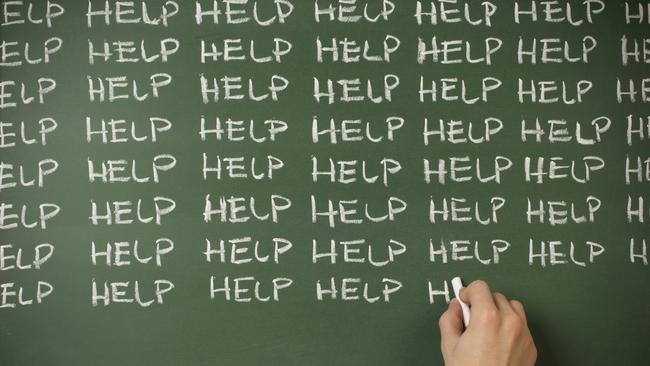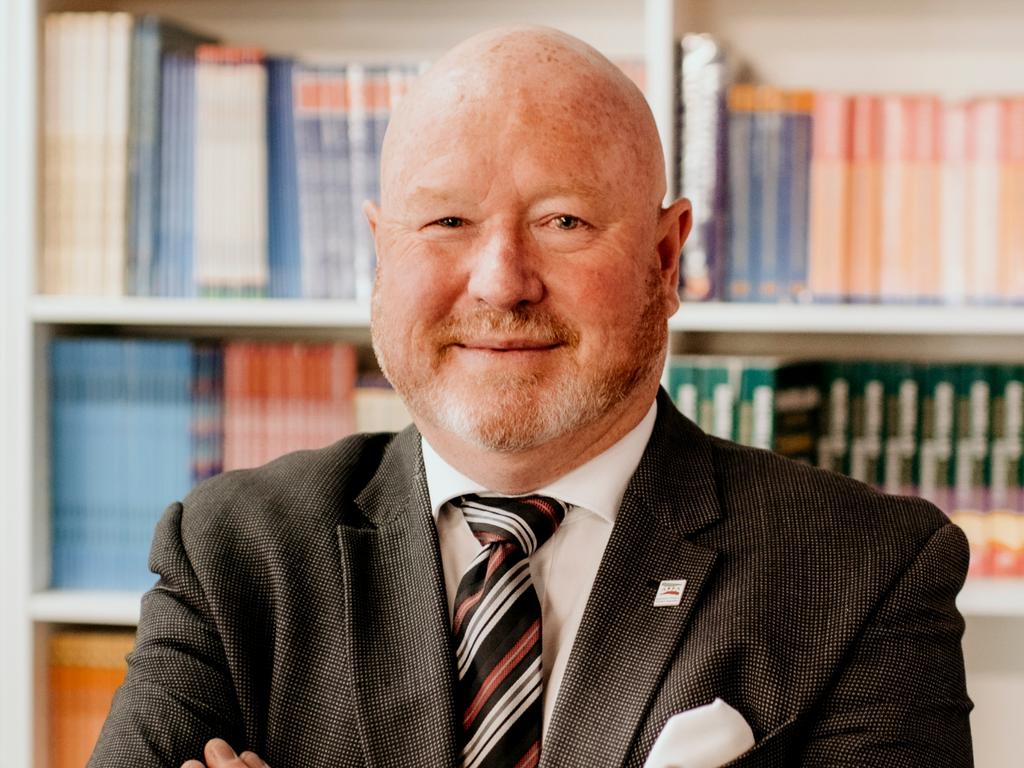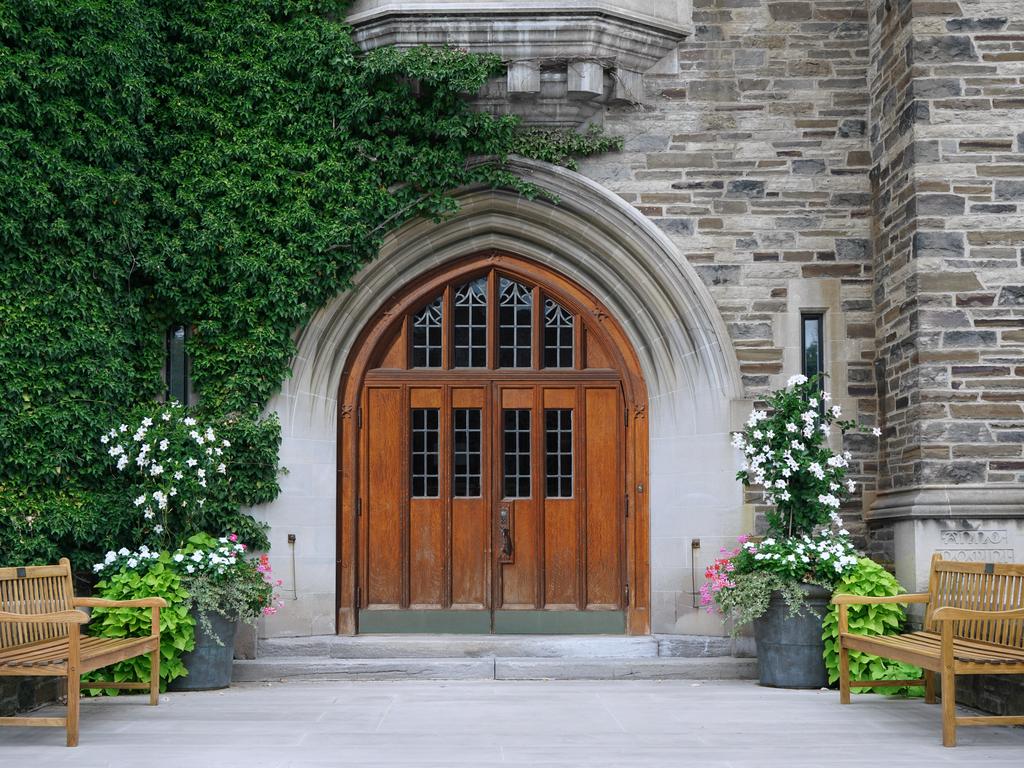Teacher Education Expert Panel recommends focus on classroom management, reading and maths
Young school teachers will be better trained to control rowdy classrooms and teach children to read and master maths, in a back-to-basics transformation of teaching qualifications.

Young school teachers will be better trained to control rowdy classrooms and teach children to read and master maths, in a back-to-basics transformation of teaching qualifications.
A government review of teacher training has called for a return to the “explicit instruction’’ of subjects in schools to lift Australia’s lagging performance in literacy, numeracy and science.
Education degrees should be stripped back to basics, giving new teachers the practical skills to manage increasingly disruptive classrooms, and to clearly explain concepts to students and measure their learning.
As schools struggle with an unprecedented shortage of teachers, the review has recommended that other professional workers be recruited to work in classrooms, through fast-tracked training courses, paid work experience and generous scholarships.
The Teacher Education Expert Panel, set up by federal, state and territory education ministers, plans to make education degrees as rigorous and evidence-based as degrees in dentistry.
Federal Education Minister Jason Clare said universities must deliver “classroom-ready graduates … I want more people bursting out of high school wanting to be a teacher rather than a lawyer or banker. Not enough people starting a teaching degree finish it, either,’’ he said.
The panel’s chairman, University of Sydney vice-chancellor Mark Scott – a former teacher and NSW Education Department director-general – said initial teacher education (ITE) should be “more like medicine, nursing, veterinary science and dentistry, with a strong skills base component in the accreditation process”. “You need to be looking very much at evidence-based teaching strategies and explicit instruction,’’ he said.
Professor Scott said consistent standards for teacher education would require a “collective effort’’ from state and territory governments, which now set different requirements for teaching degrees from 46 universities.

“You see enormous variation around the country,’’ he said.
“The accreditation program needs more focus and more teeth.
“Every ITE teaching program will need to carefully look at what they are teaching, and how much time is spent on the things that matter most.
“Accreditation for medicine operates nationally, not at a state and territory level, and that means greater consistency.’’
The expert panel released a report on Thursday that calls for the teaching of literacy to be prioritised in teaching degrees.
“It is essential that all ITE students, irrespective of stage or learning or subject area, have a foundational understanding of literacy and numeracy teaching strategies and their application,’’ the report says.
“All ITE students, primary and secondary, should be taught and understand how to explicitly teach reading and writing, not only through the English curriculum but across all subjects.
“ITE students must develop a conceptual understanding of the six strands of mathematics: number, algebra, geometry, measurement, statistics and probability.’’
The panel also prioritises “explicit instruction’’ – a traditional form of teaching in which the teacher directs students step-by-step. The old-school teaching style has been largely replaced by “student-led instruction’’, which requires children to do more work on their own.
The panel outlines explicit instruction methods as “breaking down what students need to learn into smaller learning outcomes and modelling each step so that students can see what is expected of them.’’
“When presenting new material, learning should be chunked into small, manageable tasks with well-defined goals,’’ it says. “All information required to complete these chunked tasks should be presented in one place and at one time, excluding information not directly related to the task.
“By doing this, students can manage the memory overload of learning something new without struggling to ‘hold’ information in their heads that pertain to instructions rather than content.’’
The report says student teachers should learn how to “continuously check for understanding and mastery’’ and “reteach’’ tasks to struggling students.
Teachers should provide “honest, constructive, clear and timely feedback’’ after assessments to help students correct mistakes and improve’’.

Classroom management is a focus of the panel’s report, which calls on universities to show undergraduate teachers how to manage rowdy behaviour.
“Establishing rules and routines in the classroom has been shown to be an effective practice in maximising student learning and minimising disruptive behaviours,’’ it states.
“Proactive strategies can reduce the likelihood of misbehaviour before it occurs.
“Having high expectations motivates students to learn, take responsibility for their actions and understand the consequences of their behaviour.’’
The expert panel recommends that universities do more to recruit trainee teachers from the pool of high academic achievers, who tend to study medicine, law or engineering.
It says an Australian Tertiary Admission Rank (ATAR) above 80 is “a good proxy for the quality of ITE candidates’’.
The panel wants more First Nations students, as well as those from poorer families or living in remote areas, to become teachers so they be “role models’’ for children from similar backgrounds.
However, First Nations students make up between zero and 9 per cent of trainee teachers, depending on the university.
The panel recommends financial incentives, such as scholarships and guaranteed jobs, for professionals such as engineers, lawyers or accountants to switch to teaching.
“Increasing the number of mid-career entrants into teaching can help to address teacher shortages and improve diversity in the teaching profession,’’ it says.
“Mid-career entrants generally have greater personal and financial responsibilities and as such, the loss of income during study, the length of an ITE program and competing commitments such as family and work can be significant barriers to making the switch to teaching.’’
A final report will be handed to education ministers by June 30, following public consultation.
The expert panel was set up by the Albanese government after the former Coalition government commissioned a review of teacher training.
Former federal Education Department secretary Lisa Paul, who led the initial review, had recommended tighter quality control for teaching degrees, along with higher pay for teachers and scholarships for professionals to retrain as teachers.








To join the conversation, please log in. Don't have an account? Register
Join the conversation, you are commenting as Logout